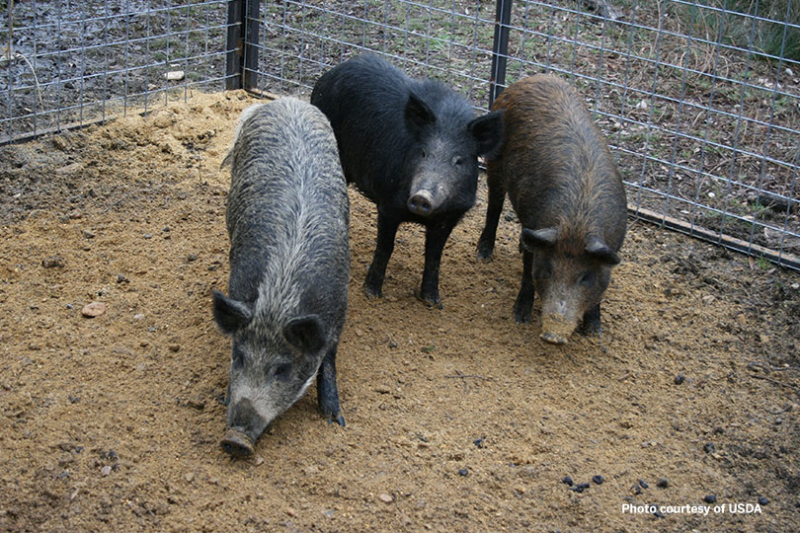By Jessica Domel
Multimedia Reporter
To help farmers, ranchers and landowners better combat feral hogs and the damage they cause, U.S. Sen. John Cornyn of Texas and several colleagues recently introduced a piece of legislation that would make the feral swine eradication program permanent.
“Feral hogs can inflict serious economic and environmental damage to our agricultural communities by destroying crops, trampling farmland and threatening other livestock,” Cornyn said. “This legislation would support our farmers, ranchers and producers in Texas and across the country by promoting removal and restoration efforts to mitigate the risk posed by this invasive species.”
The Feral Swine Eradication Act would extend and make the Feral Swine Eradication and Control Pilot Program permanent.
The program was established in the 2018 Farm Bill to respond to the threats feral swine pose to agriculture, native ecosystems and human and animal health.
The program was jointly administered by the U.S. Department of Agriculture’s (USDA) Natural Resources Conservation Service (NRCS) and Animal and Plant Health Inspection Service (APHIS) in 10 states, including Texas.
Through the pilot program, APHIS helped landowners remove feral swine and NRCS conducted environmental restoration efforts. Farmers and ranchers were also able to get assistance to control feral hogs through grants with non-federal partners through the program.
The bill to make the pilot program permanent was introduced by Sens. Cornyn (R-TX), Ben Ray Lujan (D-NM), Tommy Tuberville (R-AL), Raphael Warnock (D-GA), Katie Britt (R-AL) and Jon Ossoff (D-GA).
The bill, S. 1207, has been referred to the Senate Committee on Agriculture, Nutrition and Forestry for their consideration.
It is endorsed by Texas Farm Bureau, Plains Cotton Growers, the Texas Cattle Feeders Association and the Texas and Southwestern Cattle Raisers Association.
Cornyn introduced the legislation in the last Congressional session, but it failed to gain traction as lawmakers worked on other issues, like the crafting of a new farm bill.
Rep. Monica De La Cruz (R-TX) introduced similar legislation in the House in 2023 that would have extended the pilot program for another five years.
According to Cornyn’s office, there are about six million feral hogs in the United States, which cause more than $2.5 billion in damages each year.
Feral hogs can be found in nearly all Texas counties. The wild pigs are invasive. They root up fields and pastures, looking for food, causing significant damages. They’ve also been found to root up golf courses, front yards and even cemeteries.
Experts say feral swine are extremely intelligent, making it difficult to capture and kill the invasive species.
Due to their invasive nature, a hunting license is not required in Texas to hunt feral swine on private property with landowner consent.


What does the Feral Pig eradication act consist of? I am speaking of the pilot program, what was it?
TY
Frank
Hi Frank – The pilot program in Texas consisted of systematic trapping through USDA-NRCS organized partnerships with cooperating landowners and direct control by USDA-Wildlife Services via aircraft in certain counties across the state that were designated as part of the projects. Tracy